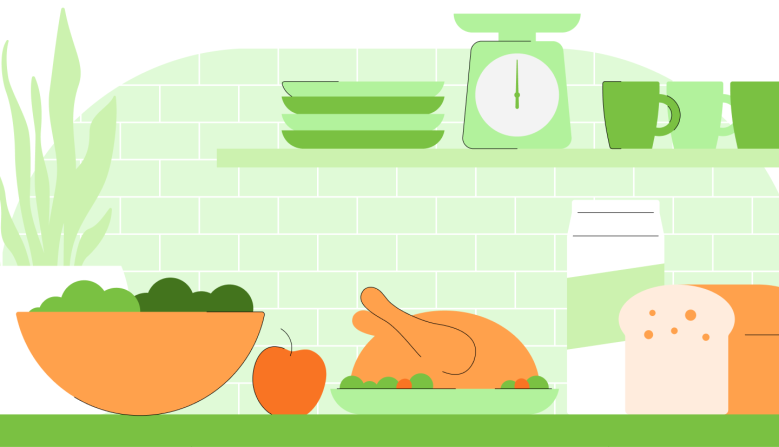Here’s What Happens to Your Immune System When You Don’t Get Enough Sleep



The quality and quantity of sleep we get impacts all corners of life. From day-to-day functioning, to mood, to our heart health, sleep plays a critical role in our wellness.
One of the lesser-known impacts of sleep is how it affects the immune system, which is responsible for fighting off infections, disease and illness. Getting good-quality sleep can go a long way in keeping your immune system strong and healthy. Poor sleep, on the other hand, can be detrimental to the immune system, making you more prone to getting sick. How much of a risk are we taking by not sleeping? Research estimates that sleeping five hours or less per night increases mortality risk from all causes by 15%. In fact, 1 in 3 adults don’t get enough sleep, according to the Centers for Disease Control and Prevention, putting them at increased risk for developing chronic conditions like obesity, diabetes and high blood pressure.
Understanding the connection between sleep and immune health is essential. Here’s everything you need to know about why sleep is critical for your immune system, according to experts and research.
Sleep and your immune system are intertwined.
As psychiatrist Sheldon Zablow, M.D., puts it, “Instead of saying ‘sick and tired,’ it should be called ‘tired then sick.’” That’s because during waking hours, our brain and body use special chemical messengers known as neurotransmitters to communicate information from the nervous system to the immune system (and the rest of the body).
Sleeping helps replenish stores of these chemicals, Zablow explains, while “flushing out cellular waste products for healthy functioning the next day.” When a person experiences poor-quality sleep or doesn’t get enough sleep, there will be fewer neurotransmitter molecules made. This means many body functions, including your immune system, won’t work optimally.
“One manifestation is that the immune system and the hormone-producing endocrine system will not be able to ‘talk’ to each other, resulting in reduced health,” Zablow says. “We call this ‘feeling run-down’ and know that when healthy sleep is interrupted over time, we are at more risk for viral infections and autoimmune abnormalities.” Lack of sleep ultimately weakens our immune defenses.
As we sleep, our bodies produce more white blood cells and cytokines, which act as messengers of the immune system and help fight off infections and diseases. “Poor sleep, therefore, causes a reduction in both of these infection-fighters, putting health at risk,” Zablow says. That’s why many physicians recommend getting good- quality sleep before a vaccination, for example, which allows the body to produce greater numbers of antibodies.
If you’re exposed to the common cold or the flu, studies have found that poor sleep quality and/or shorter sleep duration in the weeks leading up to that exposure can make you more likely to catch it. “Lack of sleep leaves one more susceptible to the common cold,” confirms Victoria Glass, M.D., a physician and medical researcher with the Farr Institute.
Sleep matters even more when you’re sick.
On the flip side, getting good sleep while you’re actually sick can help maintain a healthy connection between your immune system and sleep cycle. “When we become infected with a pathogen, such as COVID-19 or the flu, our immune system launches a full-scale attack and massively increases its activity,” says Chelsie Rohrscheib, Ph.D., a neuroscientist and sleep specialist.
If you’ve ever felt sleepy while being sick, Rohrscheib explains that “changes in immune activity almost always affect our sleep, [which] usually leads to longer sleep times and gives us the urge to sleep during the day.” Since deep or slow-wave sleep strengthens our immune system and creates antibodies and T cells, it’s more important than ever when we’re sick or ill.
“T cells, a type of white blood cell that targets invading pathogens and other diseases like cancer, are absolutely essential for fighting off illness,” Rohrscheib says. Studies show that T-cell activity is actually enhanced during sleep, meaning that most disease-fighting occurs at night.
According to Olufunke Afolabi-Brown, M.B.B.S., an attending physician in the Division of Pulmonary and Sleep Medicine at Children’s Hospital of Philadelphia, sleep can help your body repair itself faster: “During slow-wave sleep, growth hormones are released. The job of growth hormones includes helping tissue repair, stimulating cell division and replacing old and damaged cells.”
You might have also heard that a fever is the body’s way of fighting off illness. While it may seem counterintuitive to think we get fevers to help us, they’re more than just a symptom of being sick. “Our bodies fight infections with fevers,” says Glass. “When we sleep, we get better fever responses, which is why fevers tend to rise at night.” Not sleeping, on the other hand, can cause your body to take longer to respond. Health guidelines recommend most healthy adults get seven to nine hours of sleep every night, but Glass says, at the absolute bare minimum, try to get four to six hours of sleep, regardless of your schedule. If you’re able to hit this minimum (hopefully more!), your immune system will thank you.
© Meredith Operations Corporation. All rights reserved. Used with permission.

















